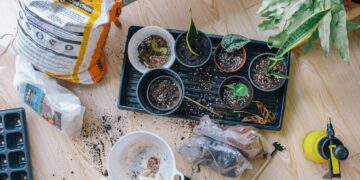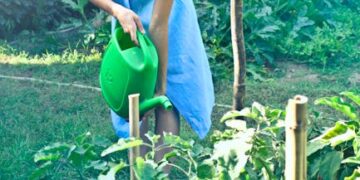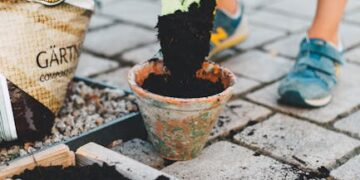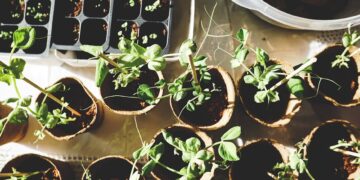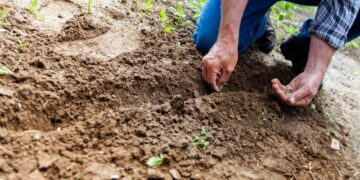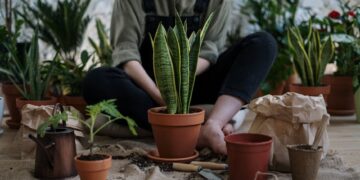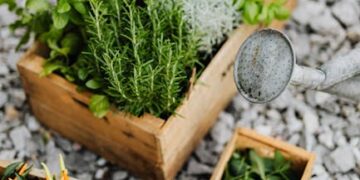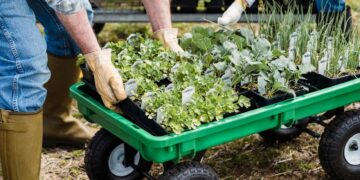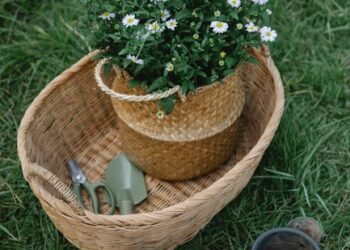Unlock the Secrets to Healthy Plants: Essential Plant Maintenance Tips for Every Gardener
Welcome to the world of gardening, where the vibrancy of green leaves and the colors of blooming flowers offer a rewarding experience worth every bit of effort. Whether you’re a seasoned green thumb or a budding gardener, knowing how to maintain your plants properly ensures they grow up healthy and beautiful. Below, we delve into the essential maintenance tips every gardener should know to unlock the full potential of their backyard oasis.
The Foundation: Understanding Your Plants’ Needs
Before diving into specific maintenance routines, it’s crucial to understand that each plant species has unique requirements for optimal growth. These basics include sunlight, water, and soil conditions.
Sunlight: The Lifeblood for Photosynthesis
The right amount of sunlight is pivotal, as it drives the photosynthesis process. Most flowering plants thrive under full sun, while ferns and some types of ivy prefer shade. Find out the sunlight requirements for your plants by researching or consulting with a local nursery.
Water: Balancing Moisture Needs
Watering your plants too much or too little can spell trouble. Most plants prefer a consistent moisture level, which means regular watering and well-draining soil are key. For instance, cacti and succulents require less water compared to thirstier varieties like basil or impatiens.
Soil Quality: The Root of Health
The right soil not only supports the physical stability of plants but also provides essential nutrients. Soil should be fertile and have the correct pH level suitable for your plants’ growth. Mixing in organic compost can improve nutrient content and soil structure.
Regular Maintenance Practices
Establishing a regular maintenance routine is necessary to keep your garden flourishing. Here are a few tasks that should be regularly performed:
Pruning: Promoting Growth and Preventing Disease
Pruning helps maintain the shape of your plants, encourages healthy growth, and prevents disease. For flowering plants, make sure to prune away old blooms to redirect energy to new growth. Always use sharp, clean cutters to make clean cuts that heal quickly.
Weeding: Securing Nutrients for Your Plants
Weeds compete with your plants for nutrients, water, and light. Regular weeding ensures that your plants aren’t fighting for their essentials. Mulching can also help prevent weeds and keep soil moisture levels consistent.
Pest Management: Protect Your Garden’s Health
Regularly check your plants for signs of pests and disease. Early detection and treatment can prevent widespread damage. Use natural pesticides like neem oil or insecticidal soap to manage pests without harming the environment.
Seasonal Plant Care Tips
As seasons change, so do the needs of your plants. Understanding and adapting your gardening care accordingly can lead to year-round enjoyment and success.
Spring: Time for Planting and Preparation
Spring is ideal for planting new flowers and vegetables as the weather starts to warm. It’s also a good time to fertilize plants, giving them a boost of nutrients needed for the growing season.
Summer: Focus on Watering and Weed Control
During hot summers, increase watering frequency to prevent drying out. Also, continue weeding and start harvesting any vegetables or fruits as they mature.
Fall: Preparing for the Cold
Prepare your garden for winter by removing any spent plants and adding mulch to protect roots from freezing temperatures. Plant fall bulbs such as tulips and daffodils for a cheerful spring display.
Winter: Rest and Reflect
Winter is a quieter time in the garden but take the opportunity to plan next year’s garden and care for winter-growing plants. Tools should be cleaned and stored, and perennials should be checked for any needed insulation from frost.
Frequently Asked Questions
How often should I water my plants?
This depends on the plant species and the climate. Typically, sticking a finger into the soil can tell you if it’s dry and needs water. Ensure that the soil is moist but not soggy.
What is the best way to determine if my garden has the right soil?
You can buy a soil test kit from your local garden store. This test will tell you about the nutrient content and pH level of your soil, guiding you on how to amend it.
Conclusion
Maintaining healthy plants isn’t just about routine care; it’s about forming a connection with nature and enjoying the fruits of your labor. By understanding the basic needs of your plants and adhering to a consistent maintenance schedule, your garden will thrive. Remember, every plant has its unique profile of requirements and challenges, so keep learning and adapting. Now, go foster that green thumb, and watch as every leaf and petal unfolds in gratitude!

